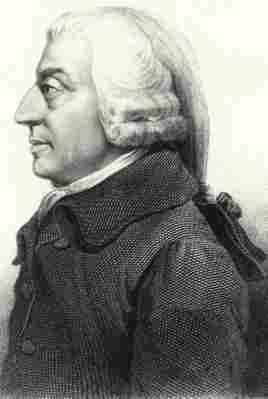Smith and Marx Walk into a Bar: A History of Economics Podcast
Our scheduled interview had to be canceled at the last moment, so we took the opportunity to have a short chat with out new co-host, François Allisson, Senior Lecturer at the Walras-Pareto Centre for the History of Economic and Political Thought at the University of Lausanne.

Smith and Marx Walk into a Bar is supported...
BA (Hons) History/Economics
You’ll study and learn with academics who are active researchers, experts in their field and have a passion for their subjects. Our approach to teaching will provide you with the knowledge, opportunities, and support you need to grow and succeed in a global workplace. Find out more about our approach to teaching and learning.

Teaching format
We focus on small-group teaching that is interactive and engaging. This includes lecturers, seminars, discussion groups, specialist workshops and field trips.
Timetabled activities
In your first year, you can expect:
Lectures 7 hours per week Seminars 3 hours per week Workshops 3 hours Practicals 0-2 hours per week
These figures are representative of a typical week. Your contact hours will vary throughout the year due to your module choices, non-compulsory classes, exam periods and changes to scheduled activities.
Outside your timetabled hours, you'll study independently. This may include preparation for classes, follow-up work, wider reading, practice completion of assessment tasks, or revision.
In the UK, full-time students are expected to spend 1,200 hours a year learning. That's about 40 hours of classes and independent study each week during term time. Everyone learns at a different rate, so the number of hours you spend on independent study will be different to other students on your course.
Teaching location
You will be based in both the Department of History and the Department of Economics and Related Studies on Campus West. Your teaching will take place in a variety of locations on Campus West.
About our campus
Our beautiful green campus offers a student-friendly setting in which to live and study, within easy reach of the action in the city centre. It's easy to get around campus - everything is within walking or pedalling distance, or you can always use the fast and frequent bus service.
Assessment and feedback
Your first-year work doesn't contribute toward your final marks. We recognise that students are only beginning to develop over the course of their degree.
From Year 2 onward, formal assessments contribute toward your degree. In your third year, your optional 8,000-word dissertation focuses on a specific topic of your choice.
Before formal assessment in many modules, you'll carry out procedural work. You will receive extensive written feedback, which will help you in your formal assessment.
Assessments range from research essays, to collaborative projects, to open 'take-home' examinations.
Your optional final-year dissertation should be a topic that is interesting to you. Don't be afraid to explore.
Percentage of the course typically assessed by coursework and exams
Year 1 Year 2 Year 3 Written exams 71% 75% 83% Coursework 29% 25% 17%
History and Economics
The History and Economics course integrates these two subjects to form a coherent and intellectually stimulating programme. The combination allows insights that neither subject can realise alone. However, it is possible to specialise primarily in either history or economics while still preserving the benefits of an integrated approach.
The combination of economics, economic history and history (political as well as social) means that you will be equipped to view issues in the real world from a variety of contrasting perspectives. You will learn both the historian’s careful approaches to evidence and argumentation and the economist’s analytical and quantitative methods, providing an excellent preparation for a range of professional, financial and academic careers.
The course is designed to equip you with the basic tools of both history and economics, while introducing you to some of the areas which you can study later in more depth. You will be given a wide choice of subjects. Everyone studies Introductory economics, which is designed to give a solid understanding of the foundations of both Microeconomics and Macroeconomics. The economics core papers are identical to those for Philosophy, Politics and Economics (PPE) and Economics and Management and students for these courses are generally taught together.
Oxford possesses exceptional library provision for both subjects in the Bodleian Library, the History Faculty and Social Sciences libraries, other faculty libraries and the college libraries.
